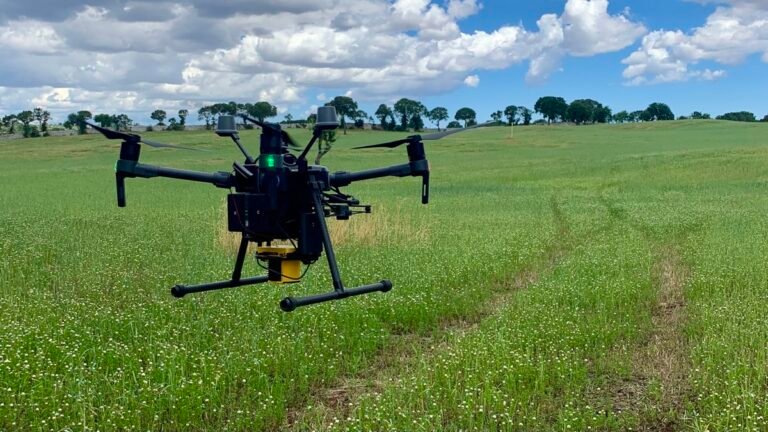The methane emission problem of closed landfills has long been ignored, but its impact on the environment and safety cannot be underestimated. Methane is a highly efficient greenhouse gas, and its greenhouse effect is more than 80 times that of carbon dioxide. After the landfill is closed, the landfill continues to degrade, and the release of methane will not stop immediately. Therefore, it is necessary to use intelligent monitoring technology for long-term management to reduce environmental risks and explore the possibility of resource utilization.
Long-Term Impact Of Methane Emissions From Closed Landfills
After the landfill is closed, the biodegradation of garbage does not stop, and anaerobic fermentation will still occur inside it, producing a large amount of methane gas. If these methane emissions are not controlled, they may have the following impacts:
Environmental pollution
The greenhouse effect of methane is much stronger than that of carbon dioxide. If it leaks into the atmosphere in large quantities, it will aggravate the problem of global warming. Methane will generate ozone after oxidation in the atmosphere, which has a negative impact on air quality.
Safety hazards
If the closed landfill is not equipped with a complete methane collection system, the gas may accumulate underground. Once the explosion limit concentration (5%~15%) is reached, it is very easy to cause an explosion accident due to open flames or static electricity. Methane leakage to surrounding buildings or underground pipelines may also cause explosion or fire risks.
Groundwater pollution
Methane gas may penetrate into the groundwater system through the soil, affecting water quality safety. The long-term accumulation of methane may also change the underground ecological environment and affect the microbial community. Therefore, long-term monitoring and control of methane emissions from closed landfills is an important measure to ensure environmental safety and sustainable development.
Intelligent Monitoring Solution For Methane Detectors
In the management process of closed landfills, the application of methane detectors covers the following key links:
Dynamic monitoring of methane concentration changes
Methane concentration is not constant, but is affected by temperature, precipitation and soil conditions. Real-time monitoring instruments can help managers understand the laws of methane generation and adjust gas collection strategies. The use of laser detection or infrared spectroscopy technology can avoid the errors of traditional sampling and improve the accuracy and reliability of data.
Intelligent prediction and risk management
Modern methane detection systems can predict future methane emission trends through historical data analysis. If the system detects an abnormal increase in methane concentration, preventive measures can be taken in advance, such as adding gas collection wells, reducing cracks in the soil layer of the sealed landfill, and preventing gas from escaping into the atmosphere.
Combination of drones and fixed monitoring stations
In the vast sealed landfill, drone cruise detection can quickly lock high-concentration methane areas and accurately locate them. Combined with the data from fixed monitoring stations, drones can provide high-altitude and surface data comparisons to ensure the scientific nature of methane control plans.
Core Advantages Of Intelligent Methane Monitoring Technology
Efficient and accurate data collection
Traditional manual sampling monitoring is easily affected by factors such as weather and terrain, while intelligent methane detectors can achieve real-time, automated monitoring and reduce human errors.
Advanced laser spectroscopy analysis technology can identify extremely low concentrations of methane and achieve accurate measurements.
Remote data management and intelligent analysis
Methane detectors are usually equipped with cloud data platforms, which can realize remote monitoring and intelligent analysis, and managers can check the methane emission status of landfills at any time.
By analyzing data through AI algorithms, the risk of methane leakage can be predicted in advance and an optimized management plan can be automatically generated.
Combination of drone technology and ground sensors
In complex terrain or large-scale closed landfills, drones equipped with methane detectors can quickly scan the entire area, identify high emission points, and improve monitoring efficiency.
Ground sensors can provide long-term and stable monitoring data, complementing drone inspections to improve the coverage and accuracy of overall detection.
The Economic And Environmental Value Of Intelligent Monitoring
Optimize landfill gas recovery and improve economic benefits
Methane is a flammable gas. Through the precise monitoring of the detector, the landfill gas collection system can be optimized and the methane recovery rate can be improved. Methane can be used for power generation or purified into natural gas to achieve energy reuse and reduce fossil fuel consumption.
Reduce environmental pollution and carbon emissions
Through intelligent monitoring, methane leakage can be effectively controlled, greenhouse gas emissions can be reduced, and global climate change governance can be contributed to. Methane leakage can be prevented from entering groundwater or soil, reducing the impact on the ecological environment.
Enhance the safety of closed landfills
Through real-time monitoring, areas with increased methane concentrations can be warned to avoid explosion or fire risks. The intelligent analysis system can provide long-term management suggestions for closed landfills and improve overall safety.
Conclusion
Methane emission management in closed landfills is a long-term project, and traditional monitoring methods can no longer meet modern environmental protection requirements. Through the combination of high-precision methane detectors and intelligent monitoring systems, managers can more accurately control methane emissions, prevent environmental pollution, and explore opportunities for the use of renewable energy. In the future, intelligent monitoring technology will play a greater role in landfill closure management and help achieve global carbon neutrality goals.
